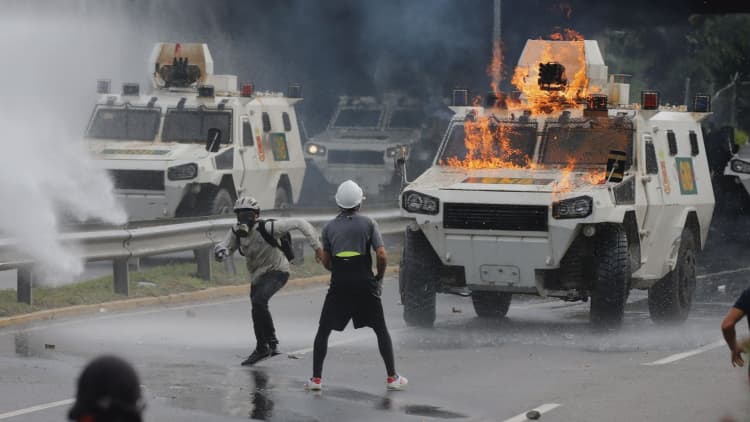Venezuela's economy may have started the year on a much-worse note than the country's legislature thought.
The National Assembly, which is led by the opposition to leftist President Nicolas Maduro, said last week that inflation hit nearly 93 percent in the first four months of 2017, but that number might be somewhat conservative.
"If you look at the black market and the devaluation of the bolivar against the dollar, [inflation] is probably two to three times higher," said Monica de Bolle,
Under the two official Venezuelan exchange rates, one dollar will bring either 10 or 723.55 bolivars. In the black market, however, a dollar fetches more than 5,000 bolivars.
Venezuela has been ravaged by a crippling shortage of food and basic goods over the past year, leaving many with no choice but to buy such items via the black market at an outrageous mark-up.
"What this means for Venezuela is, for the next few years, there will be additional food and goods shortages," said Reggie Thompson, Latin America analyst at Stratfor.
The shortages and the local currency's massive devaluation have led to rising violence between anti-government protesters and forces loyal to Maduro. Videos of the Venezuelan National Guard running over protesters with armored vehicles went viral earlier this month.

"I expect more violent incidents to take place, including in parts of the country like western Caracas, which historically has been government-friendly," Stratfor's Thompson said.
Maduro's government has faced pressure from international leaders since the clashes started. The Venezuelan president has also had to deal with dissent within his government's top brass of late.
In a May 3 interview with The Wall Street Journal, Venezuela Attorney General Luisa Ortega criticized the government she serves, condemning the state's violence against the protesters.
"I think [the situation in Venezuela] is getting close to the bottom because I don't know if Maduro can hold on to his government. It's been showing cracks for a while," said Peterson's de Bolle.



